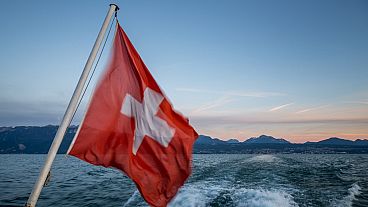New research shows countries from the continent racked up an estimated $84.2 million (€78.1) from illegal forced labour per annum – despite there being more than 10 million individuals involved in the practice in Asia.
Countries in Europe and Central Asia are estimated to make $84.2 million (€78.1) in illegal profits from forced labour every year, according to a recently published report by the International Labour Organization (ILO).
Victims from 51 European and Central Asian countries – including Germany, Italy, Russia, Spain, Albania and Uzbekistan – clocked in the highest estimation of illegal profits per victim, sitting at roughly €19.7 million.
The European Commission (EC) describes forced labour as individuals threatened with violence or intimidation to work or who have been forced to work through indirect means, such as manipulated debt, retention of identity papers or threats of denunciation to the immigration authorities. Roughly 27.6 million people are victims of forced labour globally, according to the EC.
The most money earned through forced labour is through commercial sexual exploitation, the ILO report found, with the annual earnings from this type of work in Europe and Central Asia estimated to be $58.6 billion (€54bn). Victims of forced commercial sexual exploitation situations are overwhelmingly women and girls and paid "very little" or "nothing at all".
Roughly 70,000 new victims of sexual exploitation move through Europe annually with the market estimated to be valued at $3 billion (€2.7bn), a United Nations Office on Drugs and Crime report states.
The ILO is a Geneva-based United Nations agency founded to advance social justice. According to their estimates, roughly $236 billion (around €219m) is generated every year from forced labour – with the practice in the private sector rising by almost 40% since 2014. ILO Director-General Gilbert Houngbo said the research shows "the situation has only got worse".
"Forced labour perpetuates cycles of poverty and exploitation and strikes at the heart of human dignity," he said. "The international community must urgently come together to take action to end this injustice."
Wage underpayments were measured as the difference between earnings that workers would receive under normal circumstances, such as minimum wage, and the estimated earnings they receive as forced labourers.
Wage under-payment, or bosses pocketing employees' earnings, accounted for the largest share of illegal profits garnered (85%), according to the paper's estimations. However, unlawful recruitment practices – meaning additional fees or related costs a forced labourer shoulders to work, such as bribes or kickbacks – also added a substantial amount to profits (15%).
Most problematic industries for forced labour
Industry – spanning mining, quarrying, manufacturing, construction and utilities – was found to be the most problematic privately-owned branch of forced labour economic activity, accounting for roughly 6.3 million workers (37%).
"Urgent" investment in enforcement to bring "perpetrators to justice" and stem illegal profits is needed, the ILO argues. However, prosecutions for these kinds of crimes remain very low in most jurisdictions, the report stresses, recommending imposing mechanisms to oblige perpetrators to pay compensation. This would work as a "punitive function" and a deterrent for aspirant offenders, the paper states. It believes a "broad-based approach" targeting the root causes of crime, as well as victim protections, should also be imposed.
The European Union (EU) has been tackling forced labour with its own independent mechanisms.
The European Council and European Parliament last month struck a provisional deal to keep products made by forced labour out of the EU. The first step to eradicating forced labour is "breaking the business model of companies that exploit workers", Minister for the Economy and Employment, Pierre-Yves Dermagne, said at the time of the announcement.
"With this regulation, we want to make sure that there is no place for their products on our single market, whether they are manufactured in Europe or abroad," he said. The provisional agreement now needs to be endorsed and formally adopted by both institutions.
The announcement comes off the back off the Internal Market and International Trade committee strengthening the European Parliament's resolve in October to keep products made from forced labour out of the EU.
The draft regulation proposed investigating businesses' supply chains. If a product was found to have been made with or by forced labour, the goods would be withdrawn from the EU or donated, destroyed or recycled.



